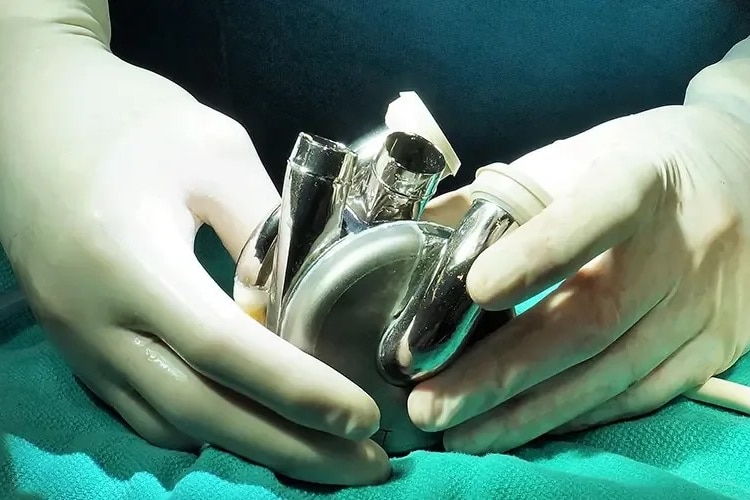In a breakthrough that signals a potential decline in heart failure deaths, doctors in Australia are celebrating a medical milestone after a man in his 40s survived with an artificial heart implant before receiving a heart transplant, The Sydney Morning Herald reported.
According to the report, the Australian researchers and doctors behind the operation announced on Wednesday that the implant, performed in November 2024, had been an “unmitigated clinical success.” The patient lived with the device for more than 100 days before receiving a biological heart transplant in March 2025.
Join our WhatsApp ChannelThe artificial heart, known as the BiVACOR Total Artificial Heart, was developed by Australian doctor Dr. Daniel Timms. Made of titanium, the device acts as a replacement for the human heart. Though still in development, it uses magnetic levitation technology to replicate the natural blood flow of a healthy heart, The Guardian UK reported.
READ ALSO: Gene Therapy Technology For Sickle-cell Disease Treatment
Dr. Timms said his inspiration for the device came from childhood experiences working alongside his plumber father, where he spent hours playing with water pumps. His passion intensified after his father died from heart failure, driving him to develop an artificial heart that could extend patients’ lives.
“Being able to bring Australia along this journey and be part of the first clinical trials is immensely important to me,” Dr. Timms said. “It is incredibly rewarding to see our device deliver extended support to the first Australian patient.”
This success aligns with global efforts to reduce heart failure deaths. According to the World Health Organisation (WHO), cardiovascular diseases (CVDs) are the leading cause of death worldwide, claiming an estimated 17.9 million lives annually. More than four out of five CVD deaths result from heart attacks and strokes, with one-third of these deaths occurring prematurely in individuals under 70. These conditions include coronary heart disease, cerebrovascular disease, rheumatic heart disease, and other disorders.
READ ALSO: Gut Bacteria Could Checkmate Cardiovascular Diseases By Reducing Cholesterol Levels In Blood
For decades, scientists have been exploring alternative solutions to address organ shortages, including xenotransplantation—the process of transplanting animal organs into humans. Prime Business Africa reported that in 2022, a U.S. hospital performed the world’s first transplant of a genetically modified pig heart into a patient, David Bennett, who survived for two months before passing away. Another patient, Lawrence Faucette, received a pig heart transplant at the same hospital but survived only six weeks.
However, the BiVACOR artificial heart marks a significant advancement, as it has now sustained a patient for over 100 days. Dr. Timms noted that the device had been tested on five other patients in the United States, but they received donor transplants within a few days, unlike the Australian patient, who was discharged with the device.
Paul Jansz, the lead surgeon for the procedure, described it as a historic achievement.
“We’ve worked towards this moment for years, and we’re enormously proud to have been the first team in Australia to carry out this procedure,” he said.
With continued development, the BiVACOR artificial heart could become a transformative solution for patients awaiting heart transplants, potentially reducing global heart failure mortality rates.















Follow Us